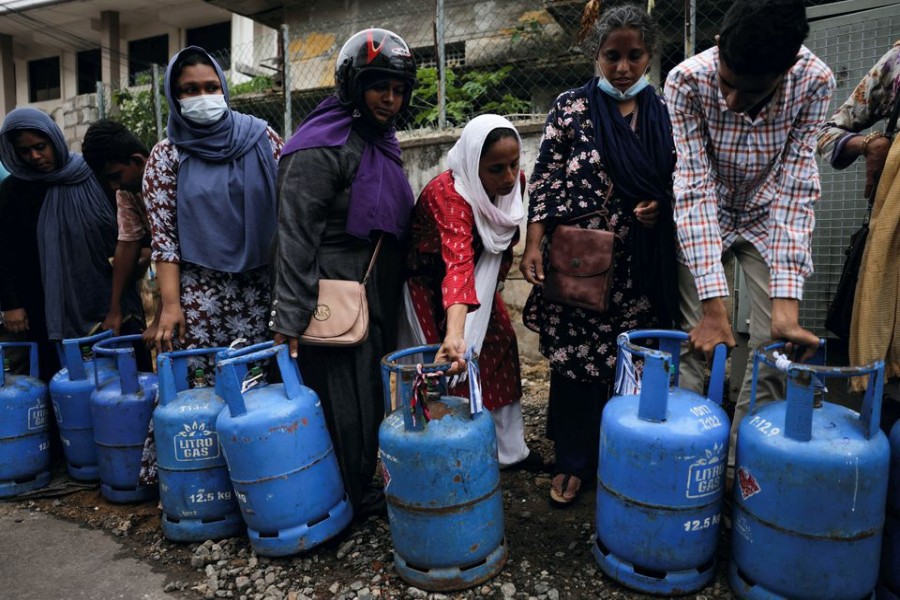Sri Lanka's new Prime Minister Ranil Wickremesinghe said on Tuesday he will present an interim budget within six weeks, slashing infrastructure projects to re-route funds into a two-year relief programme for the crisis-hit island nation, reports Reuters.
Wickremesinghe, who took office two weeks ago, warned that inflation would rise as the government gets down to tackling the crisis, and that there could be more protests on the streets.
He said he hoped any unrest would not get out of hand, adding that funds would be made available to help the most vulnerable of the country's 22 million people.
"Looking at the hard days ahead, there has to be protest. It's natural when people suffer, they must protest," Wickremesinghe said in an interview at the colonial-era prime minister's office in the commercial capital Colombo.
"But we want to ensure that it does not destabilise the political system.
"With the interim budget, it is just about cutting down expenditure, cutting to the bone where possible and transferring it to welfare."
The country located off India's southern tip is reeling from its worst economic crisis since independence in 1948, as a shortage of foreign currency severely curtailed imports of essentials including fuel and medicine, triggering months of unprecedented protests.
Much of the public ire has been targeted at President Gotabaya Rajapaksa and his family, whom protesters blame for mishandling the economy.
The roots of the current crisis also lie in the COVID-19 pandemic, which devastated the country's lucrative tourism industry and sapped foreign workers' remittances, and populist tax cuts enacted by the Rajapaksa administration that drained government income.
"We have no rupee revenue, and now we have to print another (one) trillion rupees," Wickremesinghe said, warning that annual inflation could rocket past 40% in coming months, putting further pressure on Sri Lankan households already grappling with high prices.
Inflation rose to a record 33.8% year-on-year in April, compared to 21.5% in March, according to government data released on Monday.
Earlier on Tuesday, the government announced long-flagged increases in petrol and diesel prices to help repair public finances.


